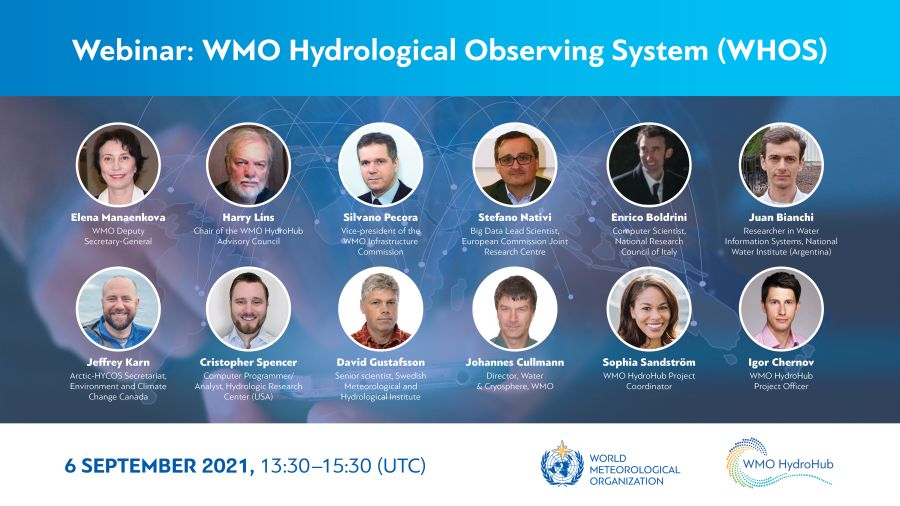IAHS News
Abstract submission deadline for SnowHydro2022
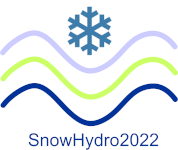
Dear Colleagues,
This is a friendly reminder that the abstract submission deadline for SnowHydro2022 is Friday 15 October 2021. Please note that we are exploring hybrid and remote options so please submit your abstracts even if you are unsure you can attend in person.
We look forward to seeing you there!
With best wishes from the organizing committee,
Tobias Jonas, Fanny Brun, Xavier Bodin, Nicolas Champollion, Marie Dumont, Isabelle Gouttevin, Florence Naaim, Claudia Notarnicola and Mel Sandells
3rd International Conference on Snow Hydrology – call for abstracts
SnowHydro2022, Feb. 1-4, Grenoble, France
https://snowhydro2022.sciencesconf.org/
- - - - - - - - - - - - - - - - - - - - - - - - - - - - - - - - - - - - - - - - - - - - - - - - - - - - - -
SnowHydro2022 will provide an exceptional opportunity to discuss recent advances in all aspects of snow hydrology in a dedicated conference setting, including snow cover processes, distribution dynamics, model development, data assimilation, operational snowmelt forecasting, remote sensing of snow, climate change effects on snow water resources, snow vegetation interactions, and ecohydrology. It is the event to meet your international peers and exchange latest ideas in a focused and informal setting. Following on from the two previous meetings in 2018 and 2020, SnowHydro2022 will take place next February in Grenoble, France in the foothills of the Alps not far from the famous Mont-Blanc.
- - - - - - - - - - - - - - - - - - - - - - - - - - - - - - - - - - - - - - - - - - - - - - - - - - - - - -
Call for abstracts: Submission of abstracts for SnowHydro2022 is now open until October-15th 2021. We solicit abstracts on all aspects of snow hydrology (see above) without predefining thematic sessions. A program will be organized into topical blocks based on the received abstracts. SnowHydro2022 will also include poster sessions to encourage focused research discussions and networking. Abstracts can be submitted via the conference webpage using the following link https://snowhydro2022.sciencesconf.org/submission/submit (create account via the login button).
Please note that the adjoint SHF annual meeting with a session on permafrost and glaciers will issue a separate call for abstracts later.
- - - - - - - - - - - - - - - - - - - - - - - - - - - - - - - - - - - - - - - - - - - - - - - - - - - - - -
About the conference: SnowHydro2022 is planned as an in-person meeting if COVID-19 conditions permit. We greatly value networking via informal discussions and the exchange of ideas throughout the conference. However, we also recognize the continuing uncertainty due to COVID-19 and are exploring hybrid and contingency virtual formats. Days #1 to #3 will feature dedicated oral and poster sessions, with no concurrent sessions. On day #4 an excursion will take participants to Chamonix Mont-Blanc and the Aiguille du Midi cable car with a fantastic view of Mont-Blanc and its glaciers. SnowHydro2022 is hosted by INRAE, the conference will take place in the historic building of the institute on Saint-Martin d'Hères campus near Grenoble, France. For more information visit https://snowhydro2022.sciencesconf.org/
Applications are invited for Sivapalan Young Scientists Travel Awards to attend IAHS 2022
Applications are invited for the IAHS SYSTA (SIVAPALAN YOUNG SCIENTISTS TRAVEL AWARDS) towards the costs of participating at the IAHS 2022 Scientific Assembly - Montpellier, France – 29 May - 3 June 2022.
Full details of the SYSTA eligibility criteria and application procedure are at: https://iahs.info/About-IAHS/SYSTA.do
The key criteria are that applicants should be from, and currently reside in, a financially disadvantaged country, be within 5 years of their PhD award and be first author of a paper in Hydrological Sciences Journal (HSJ) or Proceedings of the International Association of Hydrological Sciences (PIAHS) or in another listed hydrological journal. Applicants must have submitted an abstract for the IAHS 2022 Scientific Assembly. Those who have previously received a SYSTA award for intercontinental travel are not eligible to apply. The maximum award value is 2,500 euros.
The closing date for SYSTA applications for upcoming IAHS 2022 Scientific Assembly is 12 noon (GMT) on 12 December 2021.
2021 IAHS Tison winners announced
IAHS are pleased to announce that the 2021 Tison award goes to Svenja Fischer (Germany) and Philipp Bühler (Germany) for their work on the 2019 Hydrological Sciences Journal paper:
The paper was co-authored by Andreas Schumann (Germany) who is not eligible for the Tison Award, age-wise.
This award is prestigious with a 1000 US$ prize and a 1 year subscription to HSJ sponsored by Taylor & Francis the publisher of Hydrological Sciences Journal.
The paper is free to access at: https://www.tandfonline.com/doi/full/10.1080/02626667.2019.1679376
The IAHS Tison Award, established in 1982, aims to promote excellence in research by young hydrologists. The Award is granted for an outstanding paper published by IAHS in a period of two years previous to the deadline for nominations. The description of the award is available at https://iahs.info/About-IAHS/Competition--Events/Tison-Award.do
Save the date for WMO SYMET-14 on Education and training
As a partner to WMO, IAHS would like to draw your attention to the upcoming symposium:
Dear Colleagues,
It is our pleasure to announce the 14th Symposium on Meteorological Education and Training of the World Meteorological Organisation (SYMET-14). Since late 2019, the world has experienced dramatic and rapid shifts in our ways of living, interacting, and educating as we have all adjusted to the COVID-19 pandemic. In many ways, the pandemic has accelerated changes to the delivery of meteorological, hydrological and climate training that might have happened over the next 5-15 years. But rapid change has been recognized as the new normal for much longer, and in many more ways than those resulting from the pandemic. Technological innovations and social evolution continue to change our lives and work, climate change has accelerated and demands action, professions are becoming increasingly interdisciplinary, research uncovers new opportunities each year, and globalization means that we all interact and rely on each other more than ever. These are reflected in our symposium theme “Education and Training in a time of rapid change”. The goals of the symposium are:
• Identify the key issues for international, regional, and national actions in future Education & Training
• Apprise WMO RTC’s and training partners of the goals and status of the WMO programmes
• Further the work of the WMO Global Campus initiative to aid Members in responding to needs for developing and delivering education and training
• Recommend a collaborative platform for coordination of education and training activities between stakeholders
We hope that the symposium will be a timely opportunity for the community to come together to discuss how best to capitalise on the rapid innovations we are making in response to change. It will also give us the opportunity to discuss greater international collaboration to deliver the change in the scale and breadth of training for a changing role of meteorologists in a climate-resilient future.
Our symposium will take place between the 22nd-25th November 2021, exclusively online. The symposium will have keynotes delivered by leading figures, working groups will address key challenges in meteorological education and training and the all participants will have the opportunity to present their own challenges and responses to rapid change through virtual poster sessions. The plenary sessions will have simultaneous interpretation in the six WMO official languages to support communication. At the end of the symposium, we aim to produce a meeting statement with a series of actions aimed at driving forward the agenda of creating greater access to meteorological education and training worldwide.
The meeting website will be made available in October.
Please share this first announcement with your colleagues and look for our calls for registration and poster submissions in late September. Note that there will be no registration fee.
Best regards,
On behalf of
Andrew Charlton-Perez (University of Reading) and Anna Timofeeva (Russian State Hydrometeorological University), SYMET-14 co-chairs.
Luciane Veeck
Education and Training Support Officer
Email: luveeck@wmo.int
Education and Training Office, Member Services and Development Department
World Meteorological Organization
Address: 7bis, Avenue de la Paix. Case postale 2300, CH-1211 Geneva 2, Switzerland
2021 SYSTA AWARDS
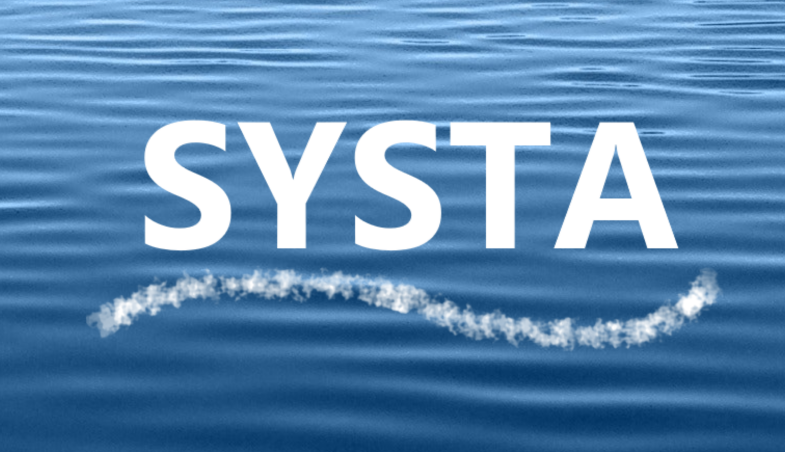
The IAHS Sivapalan Young Scientists Travel Awards (SYSTA) initiative was launched in 2018 and invites applications regularly. The aims of SYSTA are to: (1) strengthen attendance of IAHS meetings from financially disadvantaged countries (FDCs) to address the currently low attendance; and (2) foster high quality science among a new generation of hydrologists.
In July 2021, IAHS were pleased to award 13 SYSTA awards for attendance at the 4th International Conference of the Great Rivers of Africa, up to the maximum award value of €2,500.
The awardees for 2021 are as follows:
| Kossitse Venyo AKPATAKU | Togo |
| Meriem AMEUR | Tunisia |
| Rajae EL AOULA | Morocco |
| Cheikh FAYE | Senegal |
| Abderraouf HZAMI | Tunisia |
| Bérenger KOFFI | Côte d'Ivoire |
| Kan Martin KOUASSI | Côte d'Ivoire |
| Djan'na KOUBODANA | Rwanda / Benin |
| Batablinlè LAMBONI | Togo |
| N'diaye Edwige Hermann MELEDJE | Côte d'Ivoire |
| Rodric Merime NONKI | Cameroon |
| Fréderic SAHA | Cameroon |
| Pierre Jerome ZOHOU | Benin |
Our warmest congratulations go to all the awardees.
We are currently inviting SYSTA applications from eligible applicants for the IAHS 2022 Scientific Assembly. Full details of the SYSTA eligibility criteria and application procedure can be found at: https://iahs.info/About-IAHS/SYSTA.do.
IAHR/WMO/IAHS International streamgauging course
The 5th IAHR/WMO/IAHS training course on streamgauging will be held from 13-15 November 2021 in Cotonou, Benin, as part of the FRIEND-Water/IAHS conference on the Hydrology of Large Rivers in Africa, with separate registration. The three-day course consists of two days of lectures covering the basics of hydrometry and the state of the art of river gauging, and one day dedicated to field exercises. The course is aimed at students, academics and professional hydrologists who wish to gain a clear understanding of hydrometry principles and techniques. The lectures will be given by internationally renowned experts. The language of the course is French.
Information and registration:
https://friendgrandsfleuvesafriquecotonou2020.org/friend/fr/formation-3/
Notice of WMO Hydrological Observing System (WHOS) Webinar
As a partner to WMO, IAHS would like to draw your attention to the upcoming free webinar on hydrological observations and the related free access paper on e-monitoring the nature of water in HSJ by Pecora & Lins https://www.tandfonline.com/doi/full/10.1080/02626667.2020.1724296 .
The critical need for hydrological observations in support of water resources management, particularly during extreme events, has transformed traditional methods of hydrological data management. This transformation has given rise to a framework of e-monitoring the hydrological cycle, the aim of which is to improve understanding of the nature of water.
The WMO Hydrological Observing System (WHOS) was designed around the integration of observations, data exchange, research, data processing, modelling and forecasting, in such a way that societal needs for disaster risk reduction, improved sustainability of environmental resources, climate resilience and economic growth can be effectively met. With its implementation of conceptual functionalities for sustainable data management, the WHOS operational architecture is hydrology’s system for the future.
This webinar is organized in frame of the WMO HydroHub End-of-Phase communication and will present some of the highlights and achievements of the WHOS development and implementation. More specifically, the webinar will allow participants to learn more about importance of data interoperability, WHOS concept and objectives, WHOS brokering approach, WHOS regional prototypes as well as WHOS data use cases.
Day and time: 6 September 2021, 13:30-15:30 (UTC)
Zoom meeting details: https://wmo-int.zoom.us/j/89015398603
IAHS Scientific Assembly 2022
Dear all,
The organisation of the XIth Scientific Assembly of the International Association of Hydrological Sciences (IAHS 2022) is going according to plan!
We are pleased to confirm that the assembly will be held at the Corum in the city centre of Montpellier, France from 29 May to 3 June 2022.
The call for abstracts and registration will open in September 2021.
In the meantime, please find attached the latest scientific and workshop programmes.
You can find more information on the IAHS 2022 website or follow us on Linkedin or Facebook.
Best regards,
IAHS-AISH 2022 Local Organizing Committee
www.iahs2022.org 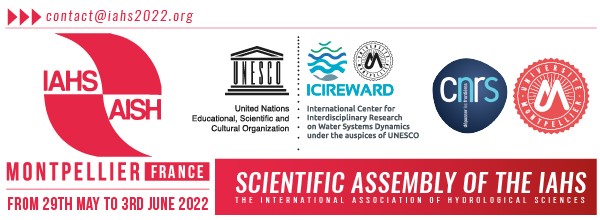
Change of Officers of IAHS
The election of Officers of IAHS and its 10 Commissions occurs every four years during the IUGG General Assembly. The most recent elections were held in Montréal in 2019. The offices are held for the period 2019-2023, except for the Presidents who were elected in 2019 and whose mandate is 2021-2025. In July 2021 the Presidents became Past-Presidents and the Presidents-Elect became Presidents.
Ordinarily the transition to new president will occur during the IAHS Scientific Assembly. However, due to the Coronavirus pandemic the 2021 Scientific Assembly has been delayed until 2022 and therefore the transition was confirmed during the recent online IAHS Bureau meeting.
With immediate effect the new officers are as follows:
| IAHS | President | Berit Arheimer | Sweden |
| Past-President | Günter Blöschl | Austria | |
| ICCE | President | Paolo Porto | Italy |
| Past-President | Adrian Collins | UK | |
| ICCLAS | President | Richard Petrone | Canada |
| Past-President | Harald Kunstmann | Germany | |
| ICGW | President | Felipe de Barros | Brazil / USA |
| Past-President | Aldo Fiori | Italy | |
| ICRS | President | Amir AghaKouchak | Iran / USA |
| Past-President | Yangbo Chen | China | |
| ICSH | President | Elena Volpi | Italy |
| Past-President | Ashish Sharma | Australia | |
| ICSIH | President | Melody Sandells | UK |
| Past-President | Tobias Jonas | Switzerland | |
| ICSW | President | David Hannah | UK |
| Past-President | Gil Mahé | France | |
| ICT | President | Zhonghe Pang | China |
| Past-President | Christine Stumpp | Germany / Austria | |
| ICWQ | Co-President (2021-2023) | Elango Lakshmanan | India |
| Co-President (2023-2025) | Xiaohong Chen | China | |
| Past-President | Wouter Buytaert | Belgium / UK | |
| ICWRS | President | Barry Croke | Australia |
| Past-President | Andreas Schumann | Germany | |
| Panta Rhei | 5th Biennium Chair | Heidi Kreibich | Germany |
| 4th Biennium Chair | Fuqiang Tian | China |
We welcome the new Presidents to their post and look forward to an exciting time at IAHS as we celebrate 100 years since the founding of the Association in Rome in 1922, and to the IAHS 2022 Scientific Assembly in Montpellier, France with a focus on the Unsolved Problems in Hydrology initiative and the end of the decade of Panta Rhei.
New Impact Factor for HSJ
On 30th June 2021, the 2020 Journal Citation Reports® were released by Clarivate Analytics.
We are delighted to announce that, according the 2020 JCR, Hydrological Sciences Journal (https://www.tandfonline.com/toc/thsj20/current) ranks in the top quartile of Water Resources journals (24/98) with an Impact Factor of 3.787 and a five-year Impact Factor of 3.5.
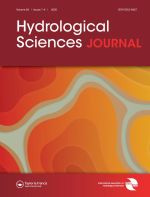
As the official journal of the IAHS, HSJ is the main vehicle and outlet for IAHS-led agenda-setting and cooperation initiatives, which has resulted in community key papers such as (recent examples):
· Nardi, F., et al., 2021. Citizens AND HYdrology (CANDHY): conceptualizing a transdisciplinary framework for citizen science addressing hydrological challenges, Hydrological Sciences Journal, DOI: 10.1080/02626667.2020.1849707
· Blöschl, G., et al., 2019. Twenty-three unsolved problems in hydrology (UPH) – a community perspective, Hydrological Sciences Journal, 64:10, 1141-1158. DOI: 10.1080/02626667.2019.1620507
· Tauro, F., et al., 2018. Measurements and Observations in the XXI century (MOXXI): innovation and multi-disciplinarity to sense the hydrological cycle, Hydrological Sciences Journal, 63:2, 169-196. DOI: 10.1080/02626667.2017.1420191
· Ceola, S., et al., 2016. Adaptation of water resources systems to changing society and environment: a statement by the International Association of Hydrological Sciences, Hydrological Sciences Journal, 61:16, 2803-2817, DOI: 10.1080/02626667.2016.1230674
The Journal also publishes special issues and virtual special issues, for example:
· Volume 65, Issue 5 Hydrological data: Opportunities and barriers (Part 1), 2020, Guest editor: Christophe Cudennec (link: https://www.tandfonline.com/toc/thsj20/65/5?nav=tocList)
· S2 Panta Rhei Opinion Paper Series: a list of opinion papers, discussions and replies (2017-) Guest editor: Heidi Kreibich (link: https://www.tandfonline.com/toc/thsj20/65/S2?nav=tocList)
· More information on other virtual special issues can be found at:
https://www.tandfonline.com/action/journalInformation?show=specialIssues&journalCode=thsj20
Such papers attract attention and contribute directly to the impact factor of the Journal.
The rise in HSJ’s impact factor and ranking is particularly good news as it has the potential to further amplify the visibility and strengthen the dissemination of the scientific research activities carried out internationally.
Our congratulations and sincere thanks go to the HSJ Editorial Office and Editors, Associate Editors and Reviewers for all their hard work for the journal.

